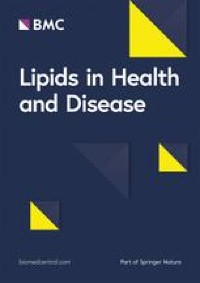I infer from this that a human who is Essential Fatty Acid Deficient(EFAD) may live longer.
Im putting a post together on 4 approaches to achieving EFAD. I’ll try and get that out in next few days. And then im going to attempt one of them.
Im putting a post together on 4 approaches to achieving EFAD. I’ll try and get that out in next few days. And then im going to attempt one of them.


